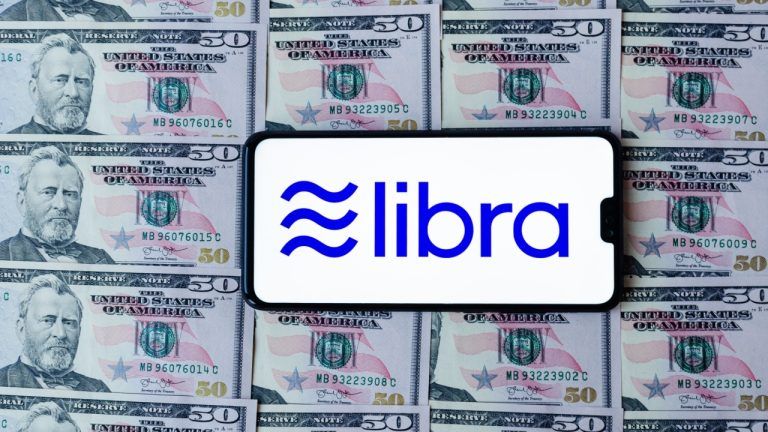
The volatile memecoin LIBRA was created by the same team behind US First Lady Melania Trump’s MELANIA asset, according to the blockchain analytics and visualization platform Bubblemaps. Argentinian President Javier Milei backed the launch of LIBRA, a token supposedly designed for “encouraging the growth of the Argentine economy.” LIBRA’s market cap soared to $4 billion […]
The post Argentina Memecoin LIBRA Created by Same Team Behind First Lady’s MELANIA: Bubblemaps appeared first on The Daily Hodl.

One of the co-founders of the controversial memecoin LIBRA says the project itself “sniped” the token right after it rolled out. In crypto trading, sniping refers to the practice of using trading bots or scripts to buy a newly launched coin ahead of big transactions or the entry of retail traders. Snipers get their edge […]
The post LIBRA Co-Creator Hayden Davis Doesn’t Deny Wallets Linked to the Project ‘Sniped’ Memecoin Launch appeared first on The Daily Hodl.

The president of Argentina is facing a potential impeachment trial over his alleged role in a memecoin pump-and-dump scheme. Late last week, in a now-deleted post, Argentinian President Javier Milei announced the launch of LIBRA, a token supposedly designed for “encouraging the growth of the Argentine economy,” along with a Solana (SOL) contract address. LIBRA’s market […]
The post Argentinian President Javier Milei Potentially Facing Impeachment Trial From Opposition Over LIBRA Launch: Report appeared first on The Daily Hodl.

Insiders extracted over $100 million from crypto markets after Argentinian President Javier Milei backed the launch of a memecoin that was supposedly designed to support the growth of the country. In a now-deleted post, Milei announced the launch of LIBRA, a token designed for “encouraging the growth of the Argentine economy,” along with a Solana […]
The post Insiders Cash Out $107,000,000 in Crypto Before Memecoin Backed by Argentinian President Collapsed: Lookonchain appeared first on The Daily Hodl.

The co-creator of Meta’s ill-fated crypto payment project Libra says a political hit job stymied their efforts. David Marcus says Libra, later renamed Diem, would have “solved global payments at scale.” The tech executive notes his team spent months briefing “key regulators” in the US and abroad prior to announcing the project in June 2019 alongside […]
The post Meta’s Crypto Project Libra Victim of ‘Political Kill,’ Says Co-Creator David Marcus appeared first on The Daily Hodl.

United States Treasury Secretary Janet Yellen supposedly convinced Federal Reserve Chair Jerome Powell into killing the project, the former Meta executive said.
The former head of Meta’s (then Facebook’s) blockchain payments solution, Diem, has revealed the project ended after insurmountable political pressure from United States regulators.
“There was no legal or regulatory angle left for the government or regulators to kill the project. It was 100% a political kill—one that was executed through intimidation of captive banking institutions,” Diem co-creator David Marcus said in a Nov. 30 X post.
Meta’s Diem (formerly known as Libra) aimed to develop a decentralized payments network with a US dollar-integrated stablecoin when it launched in June 2019. It received support from the likes of Visa and PayPal — where Marcus previously served as President.
 David Marcus, former head of Libra at Meta, described how the project ended at the hands of personalities in the high echelons of political power. He remarked that this happened even after satisfying the demands of lawmakers and regulators. David Marcus Tells How Libra Died for Purely Political Reasons David Marcus, the former head of […]
David Marcus, former head of Libra at Meta, described how the project ended at the hands of personalities in the high echelons of political power. He remarked that this happened even after satisfying the demands of lawmakers and regulators. David Marcus Tells How Libra Died for Purely Political Reasons David Marcus, the former head of […]
The vulnerability was located in a file that translates human-readable code into machine language for storage.
The Sui blockchain network quietly fixed a bug that could have put “billions of dollars” at risk, according to a May 16 announcement from Zellic, the security firm hired to audit the network’s security.
Loss of Funds Bug in Aptos and Sui
— Jasper | Neodyme (@JasperCPS) April 11, 2023
Quick spotlight on an unpublished (but fixed) loss-of-funds bug in the move verifier that seems to have been found by @zellic_io.
This would have allowed many types of exploits against Aptos or Sui based protocols.
The bug was in a dependency of the bytecode verifier, which ensures that the human-readable Move language used to write smart contracts on Sui is correctly transcribed into machine code during deployment. Had the bug not been fixed, it could have “allowed attackers to bypass multiple security properties, leading to potentially significant financial damages,” the announcement said.
In a statement to Cointelegraph, Mysten Labs confirmed that the the bug has been fixed in the SUI version of MOVE.
Zellic claimed that the bug may have also been present in other Move-based networks, including Aptos and Starcoin. However, they stated that the Aptos version of it was eliminated with a patch on April 10, according to the Zellic team.
Cointelegraph reached out to Aptos for comment but did not receive a response by publication.
In a conversation with Cointelegraph, a representative from the Move-based 0L network stated that the bug does not affect its version of Move. On May 15, 0L added a series of tests to their GitHub, which it says proves the exploit is not possible on the 0L version. The Starcoin team told Cointelegraph that their version was eliminated on April 5.
A blockchain network developed by Mysten Labs, Sui was founded by former Meta Platforms engineers. It’s a fork of the open-source Libra project created by Facebook-parent Meta. Libra was shut down in 2019.
Some developers favor Move smart contract language because its security features specifically benefit blockchains. For example, it allows developers to create custom data types, including a “coin” type that cannot be copied or deleted.
Related: Justin Sun issues apology after Sui LaunchPool clashes with Binance CEO
Like other blockchain networks, Sui does not store code in the same language it is written in. Instead, it converts this code from the network’s human-readable language to machine-readable bytecode.
In making this translation, Sui runs a series of verifications to ensure the translated code does not violate the security properties of the network. For example, it ensures that coins can’t be deleted or copied.
According to Zellic’s explanatory blog post, it was hired by Mysten Labs to do a security assessment of this verifier program. It did not find a bug in the verifier itself. However, it found a bug in the “Control Flow Graph” or “CFG” file that the verifier uses to accomplish many of its tasks. Because of how it was written, the CFG could allow certain lines of code to be hidden from the verifier, allowing code that violates the network’s security principles to be stored and run without getting caught.
In its explanation, the team stated that the most obvious way this vulnerability could have been exploited is by malicious borrowers taking out flash loans. When flash loans are implemented on Move-based networks, the loan protocol usually sends the borrower an asset that cannot be deleted. If the borrower can delete this asset, they “could successfully take out a flash loan and not repay the borrowed funds,” the team said. Other types of exploits could also have been possible since the vulnerability allowed the basic principles of Move security to be violated. It, therefore, “[placed] potentially billions of dollars at risk,” the security firm stated in its post.
Move-based networks and their apps have been making waves in the fundraising world lately. A Sui-based decentralized exchange called Cetus raised over $6 million in one minute on May 8. The company behind Aptos also raised over $150 million in July 2022.
This story was updated on May 16 to include statements from Mysten Labs and Starcoin confirming that the bug existed but has been eliminated through software updates.

It only took Libra/Diem two years to come full circle from publishing its white paper to falling apart.
On Jan. 31, Meta, formerly known as Facebook, announced that it was pulling from its stablecoin project, Diem, formerly known as Libra. Intellectual property and other assets related to the operations of the Diem Payment Network were to be sold to Silvergate Capital Corporation, essentially meaning the end to Mark Zuckerberg and his corporations’ stablecoin aspirations, at least in their current shape. This also marks the end of a once-groundbreaking initiative that was revealed in 2019 with a promise to bring a global alternative to fiat money to Facebook’s 2-billion-strong user base. Here is how this plan went from the initial announcement to the shutdown.
The news of Facebook launching its own digital currency came as a boost of optimism for the social media giant, whose brand in the late 2010s came to be associated with the lack of privacy and ethics, as well as disfunctional governance.
On June 18, 2019, the company released the white paper of its prospective global stablecoin under the name “Libra.” The prospective asset was to be backed by its own blockchain on the operational side and by a reserve of various assets (a basket of bank deposits and short-term government securities) on the financial level.
From the very beginning, Libra didn’t try to pretend to be a decentralized cryptocurrency — its governance mechanism was designed as a consortium (the “Libra Association”) including big-name companies such as Mastercard, PayPal, Visa, Stripe, eBay, Coinbase, Andreessen Horowitz, Uber and others. Facebook itself was “expected to maintain a leadership role.” The social media giant also planned to maintain its influence by running a wallet, Calibra.
The project’s original positioning was to serve not as a speculative asset but as a service payment tool. The minting of new tokens was tied to the process of buyout by “authorized resellers” from among the association’s members.
The white paper received mixed feedback from the crypto community. Some of the industry opinion leaders decried the compromises that Facebook’s project had made in terms of both decentralization and security. Bitcoin (BTC) advocate Andreas Antonopoulos, for example, denied Libra the status of cryptocurrency on the basis that it lacked any of crypto’s fundamental characteristics, such as being public, neutral, censorship-resistant and borderless.
Others, however, preferred to focus not on the actual project’s design but on Libra’s potential effects on global crypto adoption. “Some of the biggest companies in the world are starting to recognize the promise of cryptocurrency and see its potential for changing the way consumers and businesses interact globally,” said Tron founder and CEO Justin Sun at the time.
But perhaps the most important thing about the Libra project was its potential to sidestep both existing crypto and fiat currencies alike — not by the virtue of its technical or design superiority but solely due to the network effects of having over 2 billion users on board from day one.
As Ross Buckley, a digital economy expert and professor at the University of New South Wales, warned in his paper, “Libra is perhaps the ultimate example of something that is highly likely to move from ‘too small to care’ to ‘too big to fail’ in a very short period of time [...] This is an alternative money.” Buckley surely wasn’t alone in his fears — the obviousness of Libra’s inherent power predestined the enormous pressure it would get from the regulators.
It took the United States Senate less than a month to get Libra co-creator David Marcus to testify at a special hearing, where the Facebook executive was exposed to a fervent grilling. Notably, it was not only Senator Sherrod Brown but also his perpetual opponent Senator Pat Toomey, who bombarded Marcus with hard questions (although Toomey also called not to “strangle the baby in the crib”). The news about Facebook’s private currency hadn’t gone unnoticed even by the then-President Donald Trump, who reacted in his signature expressive manner:
If Facebook and other companies want to become a bank, they must seek a new Banking Charter and become subject to all Banking Regulations, just like other Banks, both National and International.
The pushback was not confined to the United States. In September 2019, French Finance Minister Bruno Le Maire declared that his country and the whole of Europe wouldn’t tolerate Facebook’s new project because the “monetary sovereignty of states is at stake.” Weeks later, the Bank of England issued a warning that, for it to become legal in the United Kingdom, Libra would have to meet all the necessary standards of traditional banking compliance.
What followed these statements was the first wave of backouts from some of the Libra Association’s founding members. With such companies as PayPal, Visa, Mastercard, eBay and Mercado Pago quitting the project, its image took a huge hit.
But back then, Facebook speakers played down the significance of these events. “Of course, it’s not great news in the short term, but in a way it’s liberating. Stay tuned for more very soon. Change of this magnitude is hard. You know you’re on to something when so much pressure builds up,” wrote Marcus on Twitter.
By October 2019, five European nations — France, Germany, Italy, Spain and the Netherlands — had created an unofficial task force to prevent Libra’s launch in Europe. The pressure rose to the point when the CEO of the Netherlands’ largest bank, Ralph Hamers, publicly commented on the possibility to cut any operations with Facebook.
Facebook’s response to the pressure came in April 2020 in the form of “Libra 2.0.” The updated white paper introduced four key changes “to address regulatory concerns,” most notably of which was the switch from a single currency to a family of stablecoins, each backed by a single national currency (such as the U.S. dollar, euro and British pound).
As Brieanna Nicker from the Brookings Institute wrote at the time, “It also could be seen as a scaling back of Facebook’s ambitions, for the proposal is now more like a PayPal with a different technological backbone than a competitor to sovereign currencies.” Among other stated changes were the enhanced compliance framework and transition from a permissioned to permissionless blockchain within five years.
On Dec. 1, 2020, Facebook complemented the technical adjustments with a brand change: Libra became Diem, and Calibra became Novi. According to the company’s statement, this transition should have marked “a new day for the project.” The renaming came a week after the disclosure of a plan to launch the first USD-backed stablecoin.
At that time, the second version of the project was still officially opposed by the G7. Olaf Scholz, the current federal chancellor of Germany, who then served as a finance minister, called Diem “a wolf in sheep’s clothing,” stating that the name change hadn’t convinced the regulators.
The year 2021 didn’t bring good news for Diem. As the long-awaited launch has been delayed once again (by that time, Switzerland’s Financial Market Supervisory Authority still hadn’t granted grant Switzerland-based the Diem Association a payment license), on Feb. 23, the European Central Bank demanded from the European Union lawmakers a veto power to unilaterally block any private stablecoin projects when necessary.
In September 2021, The Washington Post reported on the ongoing attempts of Facebook’s top management to reach some compromise with U.S. regulators. But apparently, the negotiations stalled, as Marcus’ claim that Diem “has addressed every legitimate concern” caused public blowback from lawmakers.
The chairwoman of the House Financial Service Committee, Maxine Waters, retorted that rebranding had nothing to do with solving the major privacy, national security, consumer protection and monetary policy concerns. Top Republican member of the same committee, Representative Warren Davidson, sardonically mimicked Marcus’ blog post:
I’m not sure how Facebook and the Diem Association could have addressed ‘every legitimate concern’ whenever there’s overarching regulatory uncertainty that permeates many facets of the crypto space.
The last glimpse of hope sparked when, in a partnership with Binance, Facebook finally launched the pilot version of Novi Digital Wallet — a vital part of the planned Diem ecosystem. But it didn’t last longer than a few hours before a group of five senators wrote a joint letter to Zuckerberg with an unequivocal demand to “immediately discontinue” the project. In a casuistic response, the Diem Association tried to distance itself from Facebook.
On Dec. 1, Marcus, the formal head of Novi and the face of the Meta/Diem project, announced his resignation. Marcus, who had been working at Facebook since 2014, didn’t go into detail on the reasons for his decision, joining the list of Facebook’s key crypto figures who left in 2021, including fellow Diem co-founders Morgan Beller and Kevin Weil. With Marcus’ departure, it was hard to expect anything good in the upcoming 2022.
Speaking to Cointelegraph immediately after the news of Facebook parting with Diem, Buckley, who had foreseen the regulatory reaction to the project back in 2019, shared his conviction that this is indeed the end of the stablecoin initiative: “I would be really surprised if it survives. It is a project designed to benefit from Facebook’s scale and reach and is now quite a scarred product.”
Buckley believes the company “profoundly mishandled the entire announcement” back in the day, overplaying its card as one of the biggest tech companies in the world. It surely wasn’t well-received by the wide range of regulators across the globe, as a digital currency with a user base of 2 billion was obviously far beyond the scope of a social media business:
Facebook took the classic tech company approach to this of surging ahead and then seeking forgiveness rather than seeking permission upfront. This may well work with telecoms [...] but financial regulators expect to be treated with respect, as do governments with respect to their monetary sovereignty. The sharp resistance was in part because financial regulators and governments first learned of this from the media, not directly and well in advance, from Facebook.
Apart from Zuckerberg’s bravado that possibly played its role in Libra/Diem’s ultimate demise, this case could be seen as a hint to something more alarming. Facebook’s project of the world’s first global digital currency with an immediate mass adoption boost provoked instantaneous and concerted resistance from regulators.
What that means is that we can probably expect a response no less stiff and immediate should any other digital currency rise up to Diem’s adoption potential. As Buckley puts it, “The ability to mint the currency of the realm is a core element of sovereign capacity and has been for centuries.” And there’s no reason to believe that it won’t be defended ferociously. Hopefully, Diem’s example will serve as a reminder that the importance of regulatory negotiations should not be underestimated.

Meta has officially given up on its stablecoin project Diem after more than two years of efforts to launch the digital currency.
Meta, formerly branded as Facebook, has officially announced the closure of its digital currency project Diem after years of major efforts to move forward with the initiative.
Announcing the news on Monday, Diem CEO Stuart Levey confirmed that Meta is selling intellectual property and other assets related to the Diem stablecoin project to its Silvergate Capital Corporation.
The Diem Association and its subsidiaries will start winding down operations “over the coming weeks,” Levey said. The association, however, is still confident that Diem’s ideals will continue to thrive even after Meta officially terminated its involvement in the project, the CEO noted:
“We remain confident in the potential for a stablecoin operating on a blockchain designed like Diem’s to deliver the benefits that motivated the Diem Association from the beginning. With today's sale, Silvergate will be well-placed to take this vision forward.”
According to an official announcement by Silvergate, the company will purchase assets of Diem for the aggregate value of $182 million. “As part of integrating the acquired assets into Silvergate’s existing technology, Silvergate expects to incur approximately $30 million of additional costs in 2022,” the firm said.
Specifically, Silvergate Bank, a subsidiary of Silvergate and Meta’s stablecoin partner, will integrate its payment platform, the Silvergate Exchange Network, with Diem’s assets. The new combination will help the bank launch a “next-generation global payment system that is faster, easier to use and more cost-effective than existing solutions,” the announcement notes.
“We identified a need for a U.S. dollar-backed stablecoin that is regulated and highly scalable to further enable them to move money without barriers. It remains our intention to satisfy that need by launching a stablecoin in 2022,” Silvergate CEO Alan Lane said.
Meta officially introduced its digital currency project back in 2019, originally called Libra and including a foundation of top global companies like Mastercard, PayPal, Visa, eBay and others. The project received massive global regulatory pushback, with financial authorities expressing major concerns over tech giants potentially taking over too much financial power.
Despite major regulatory pressure, Meta attempted to roll out some of its services in the United States, with WhatsApp messenger testing payments with Meta’s Novi wallet in December 2021.
“In the United States, a senior regulator informed us that Diem was the best-designed stablecoin project the U.S. government had seen,” CEO Levey stated.
Related: PayPal stablecoin: What it could mean for payments
While the Diem Association is wrapping its stablecoin, some of its original members are moving forward with their own stablecoin plans. In January, PayPal officially confirmed that it was “exploring a stablecoin” that could be called PayPal Coin.